From March 19 to 23, 2018 Minsk State Linguistic University set Academic Teaching Excellence (ATE) training for lecturers holding classes for foreign students’ lecturers in English. The event was organized by the British Council Ukraine, Minsk State Linguistic University and Republican Institute of Higher Education. Among the participants one could find Alexander Emelianov, Assistant Lecturer of the Department of Economics, Management and Economic Theory and Yulia Prikolotina, Head of the Department of Criminal Law and Criminalistics representing Polotsk State University. It was Mark Searle, Professor at the University of Oxford and the British Council member, who carried out the professional training.
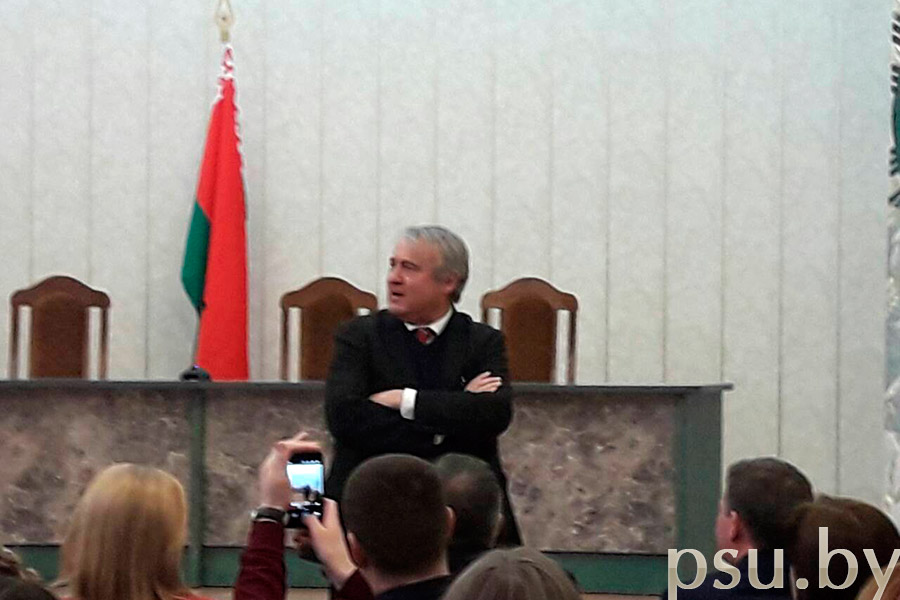
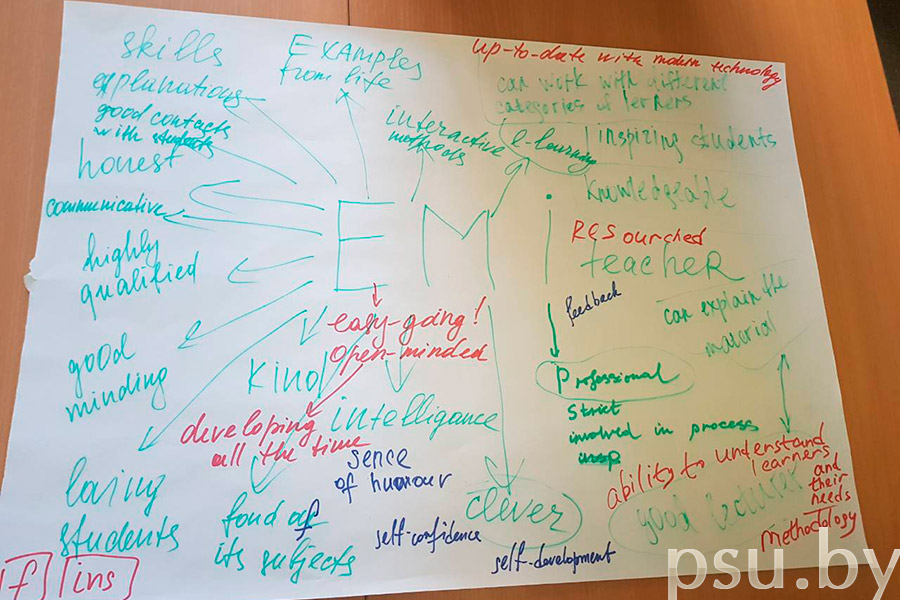
The main objective of the event was teaching skills improvement when holding classes for non-native speakers and learners in English. Still, the crucial point centered around the pedagogical paradigm for the latter being the basis of modern Western educational system. Supporting this idea, the basis presupposes effective communication between all, being non-native speakers, involved in the educational process. It is wondering that modern Western educational paradigm is based on the social constructivism approach referring to Lev Vygotsky (Vitebsk).
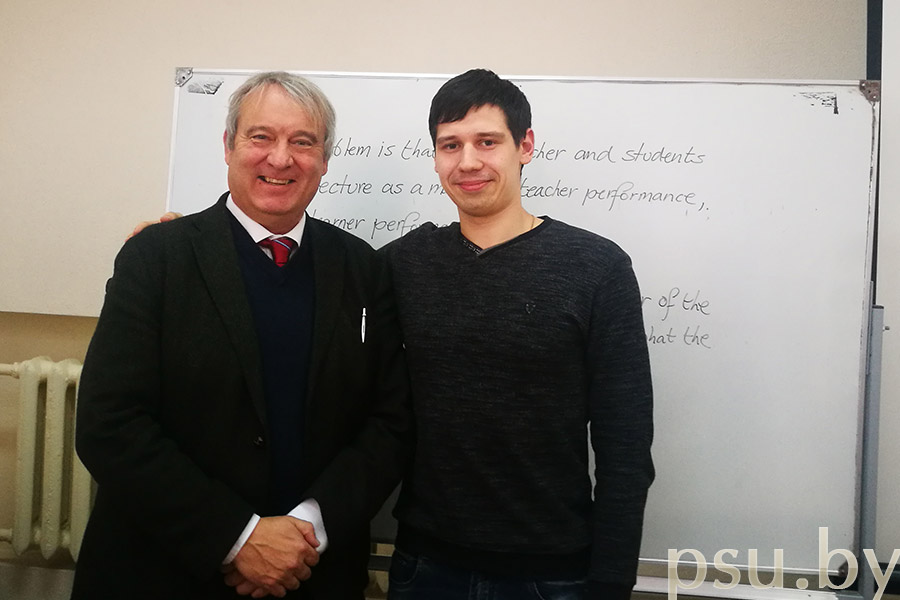
As a fact, both learners and lecturers meet challenges while learning or teaching when it deals with non-native language speaking. That is why, there is a necessity to apply some pedagogical strategies which aim to in-volve students in the educational process and to motivate them. Further goals concern their concentration and information perception strengthening.
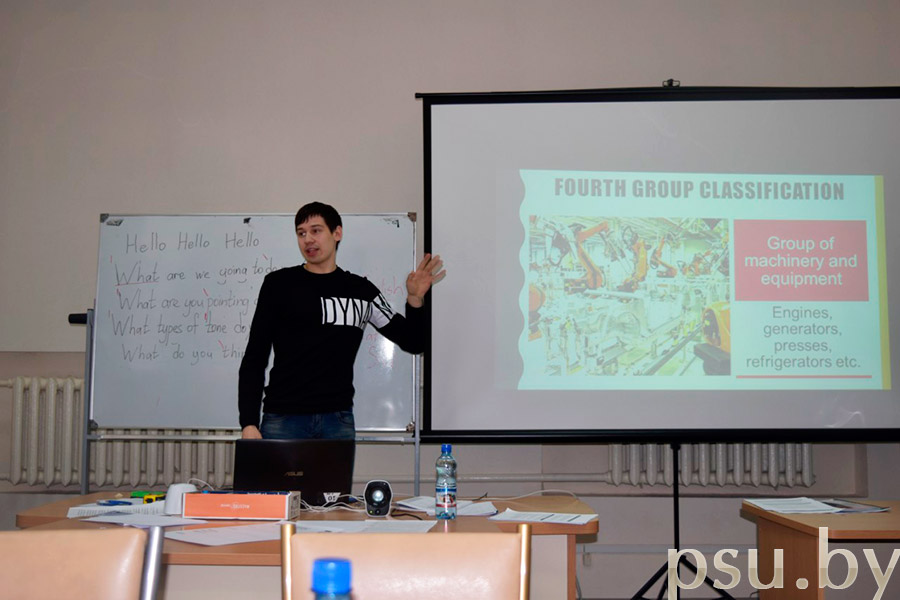
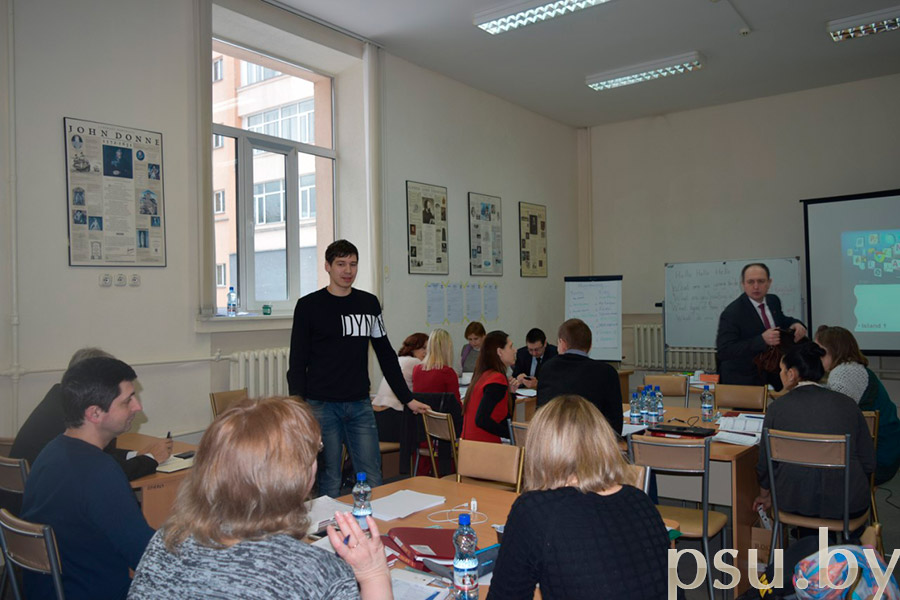
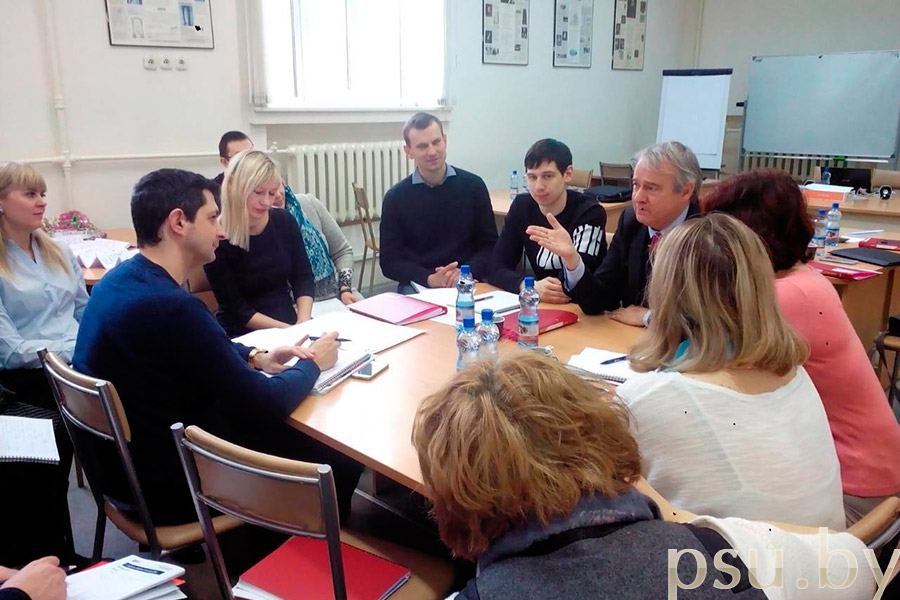
Mark Searle states that the basic problem to confront is a widespread lack of efficiency in teaching. However, such a model of learning process organization being cheap and popular still holds the leading position. A lecture still stays a mean of material distribution and students are frequently passive. As far as Professor Searle concerned, being a follower of the above-mentioned educational paradigm, he insists on a student being always active. The reason is that the way knowledge and skills are received is processed not through listening but acting. Here lecturers are to design the learning process which provides help and creates conditions necessary for active and independent learning. Thus, a lecture itself undergoes various alterations.
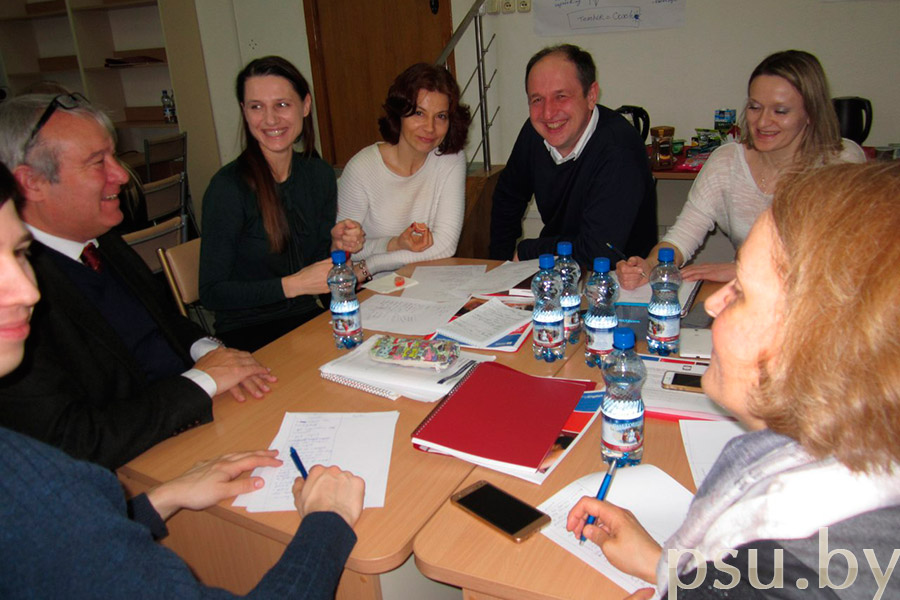
Besides, the training course directed at methodological capacity of questions. Being properly asked (or chosen), the latter may serve as a driving educational force since they initiate creative activity.
The created educational atmosphere was initially peculiar. So exploring new teaching methods allowed to appreciate it fully. Mostly, the participants did not listen but acted, exchanged opinions when working in the groups with the members being constantly changed. All that promoted consistency in enriching experience, positive and effective communication and engagement for it being the essential component of the educational process.
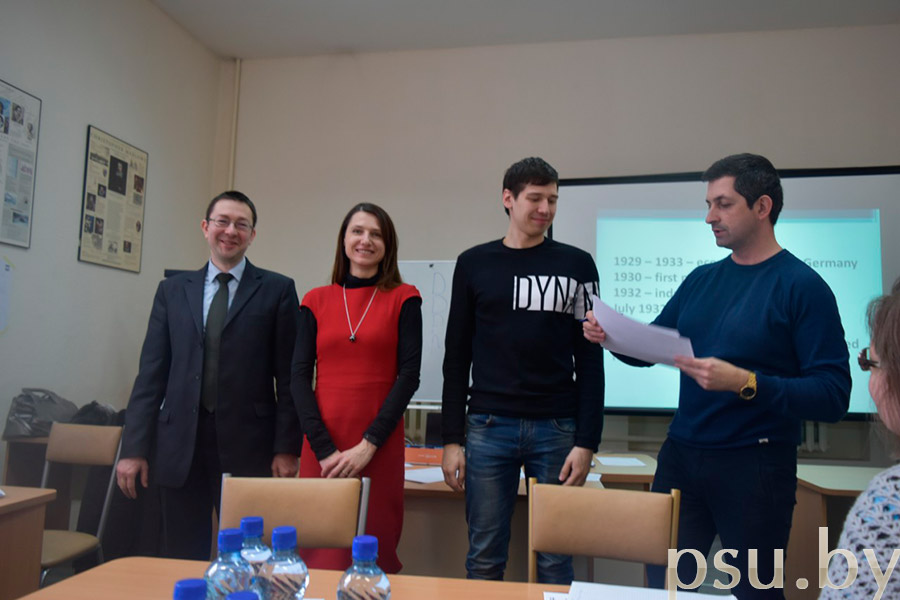
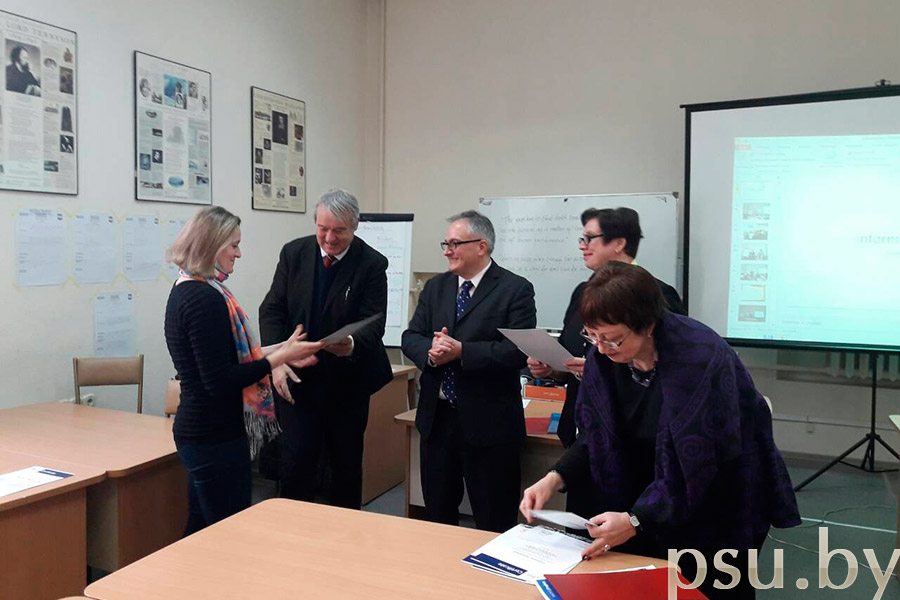
The “peer instruction”, referring to one of the learning effective innovation and being implemented into the Western educational process, was created by Eric Mazur, Professor at Harvard University. His method is based on the idea that a student absorbs the material far more effective due to “peers”, other students. The reason is that there seemed to be the discrepancy of the material complexity level provided by a lecturer and perceived by a student. To explain the material, a lecturer may choose methods he considers to be the best to illuminate issues. But those may appear to be foreign to a student. Thereby, students may explain the material to each other better than a lecturer. To say, one may find out more about the method offered by Eric Mazur on the Internet.
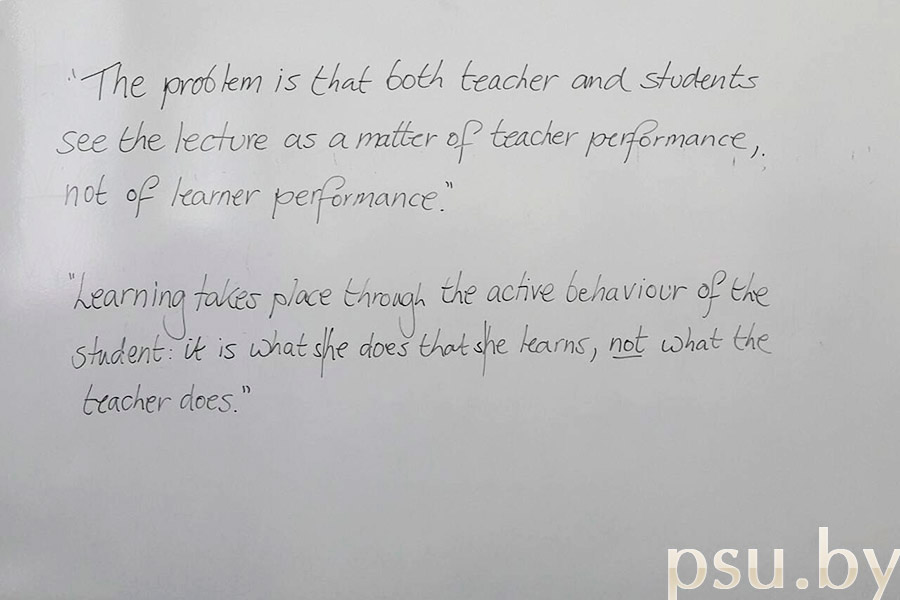
Moving on, the training program was focused on course basic principles being led in English. Which, in their turn, included intensive language immersion and language competencies analysis. The discussion continued to dwell upon teaching methods in various contexts and practical tasks presented by each participant with follow-up discussions and professional advice. To introduce the method, Professor Searle offered mini-lectures which were prepared and presented by each participant. As a result, the material presented was reviewed by both participants and Mark Searle. Assessing the training included the following skills:
- Communication (intercourse, asking questions, time management)
- Language (special terminology, grammar, lecturer speech rate, terminology comprehensibility (the use of common words and expressions), utterances as a way of focusing on content)
- Presentation making (gestures, mobility, audience engagement, lecturer skills)
The training course special emphasis was given to skills development for lecturers lacking linguistic education. The participants were also taught:
- To prepare the materials for lectures and to speak English fluently
- To present lectures for students with different language levels
- To communicate effectively with students whose native language is not English
- To use English when advising research papers
- To lead discussions, to organize working in groups
The methods arranged for interactive activities comprise revision, preparation for classes, review of knowledge received during classes. For lessons be efficient, students have to be active. Here we mean initiation-response-feedback (IRF). This approach is to exchange and to absorb the information in the classroom. One more important point is peer-to-peer education. The interactive activities promote skills needed to comply with specific tasks, to give clear and concise answers, to develop critical thinking etc.
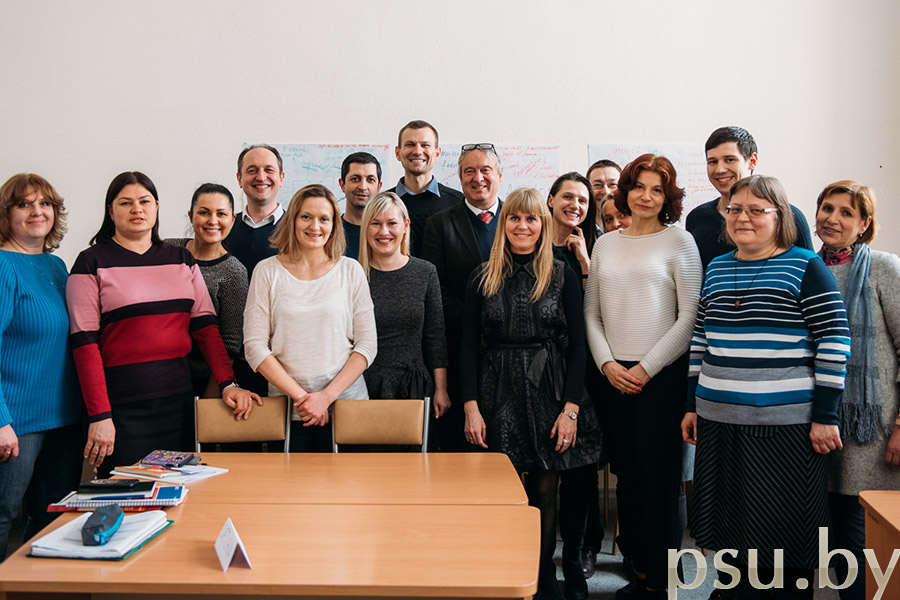
Was it possible for participants to apply new skills? Supposedly, it did happen. The gained knowledge and skills helped to hold classes in English for student from Ghana taking “Accounting, analysis and audit” course (as a part of other courses namely “Management theory”, “International economy”, “Economy and enterprise”) and also for the student from Belarus and Turkmenistan following “Criminal law. Special part” course. To make classes ef-fective, one may upload a lecture and all referential materials in Google Classroom beforehand. Afterwards, it becomes possible to deal with the questions or to work in groups. As for students, they commended the usefulness of working in small groups with the further solutions, discussions and professional review followed.